May 5, 2024 | 06:11 GMT +7
May 5, 2024 | 06:11 GMT +7
Hotline: 0913.378.918
May 5, 2024 | 06:11 GMT +7
Hotline: 0913.378.918
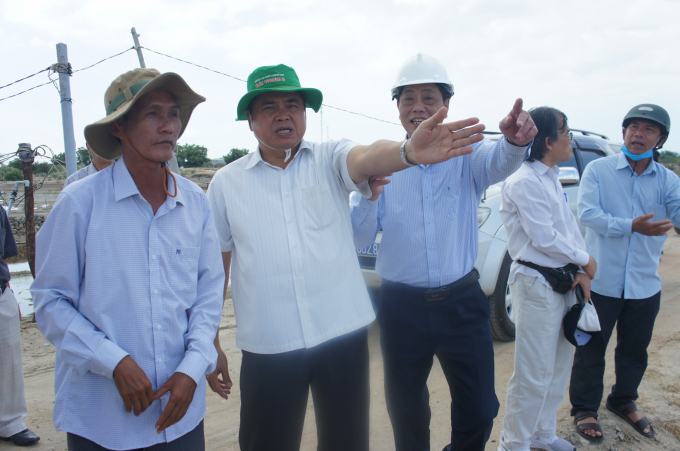
Deputy Minister Tran Thanh Nam visited saltpans in Nhon Hai commune. Photo: Mai Phuong.
On 14 April, Deputy Minister Tran Thanh Nam went on a business trip to Ninh Thuan province, during which he paid visits to a number of salt works.
The group of officials visited saltpans in Nhon Hai commune, Ninh Hai district. These pans constitute the province’s largest salt evaporation area to be owned by farmers, totaling over 300 hectares.
Mr. Tran Thanh, Director of Khanh Nhon Salt Cooperative, said currently there is no channel for seawater to flow along to the ponds, thus all source of salt is groundwater. As salt has been being produced here for generations, seawater has soaked into the ground, hence the place’s high salinity.
To drill wells to access the groundwater, a farmer first has to pay VND 40 million for an area of 1 square metre – just sufficient for a well. Drilling a well 30 metres deep costs roughly VND 35 million, not to mention electric lines required. Furthermore, as undeveloped infrastructure here does not allow trucks in, farmers have to rent smaller vehicles to transship salt harvested. All these expenses add up.
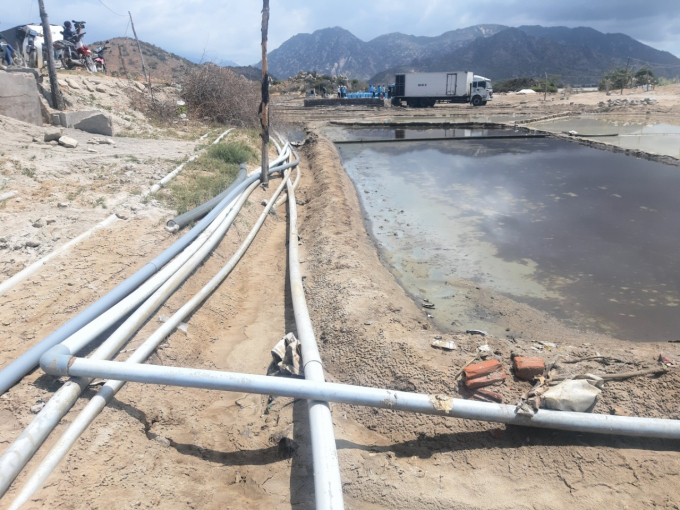
Since there is no channel for seawater, farmers have to drill wells and install plastic pipes to transport water into the salt ponds.
“Salt production is not organized among the farmers, salt area owned by each household is modest, and so everyone is producing salt their own way, hence low quality salt. The farmers cannot profit by selling salt at the current rate of VND 450 – 500 VND per kilogram,” Mr. Thanh added.
Another problem posed is that the cooperative's salt production area totaling 50 hectares is interspersed with the farmers’ ponds, making formation of a large saltern difficult.
With all the shortcomings mentioned, the province’s Department of Agriculture and Rural Development proposes the Ministry to invest in infrastructure that serves its people’s salt production.
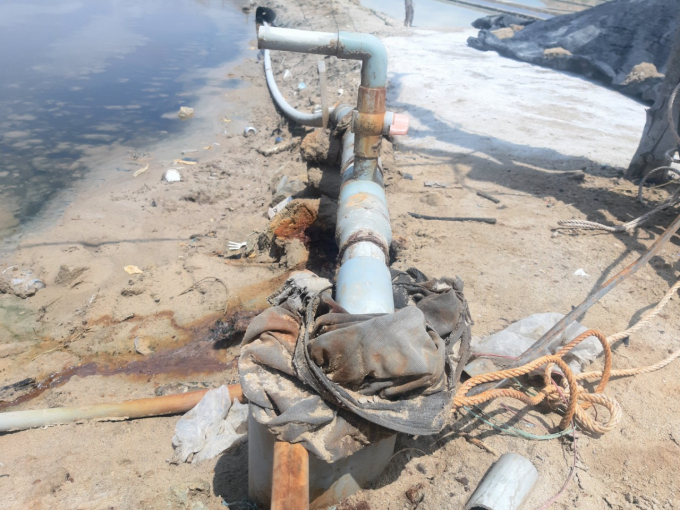
A 1-square-metre area for a water well costs a farmer VND 40 million.
According to Deputy Minister Tran Thanh Nam, annually about 1.3 million tons of salt is produced in Vietnam, while domestic demand is estimated at 1.8 million tons and the country has spare capacity. The issue here is how to enhance the quality of the farmers’ salt.
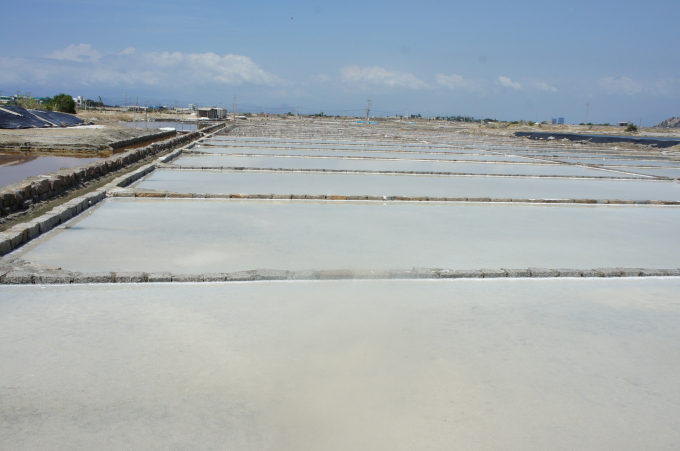
Ninh Thuan farmers’ salt ponds are modest and lying strewn, salt is low quality.
“Our salt industry must be oriented towards domestic demand first and importation limited. We should build an effective salt production model, starting from farmers,” the Deputy Minister emphasized.
For a more efficient production, the farmers should join the cooperative. The cooperative must re-plan the salt ponds to reduce costs, improve salt quality, and secure the value chain of the industry.
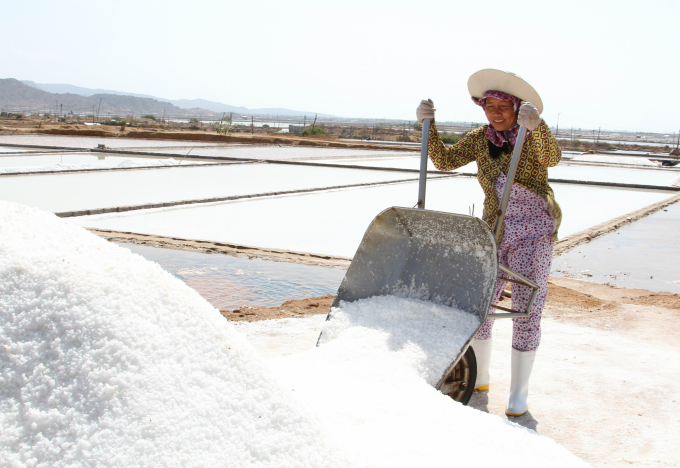
To improve salt quality, farmers should join larger salt production area.
To put the model into practice, Khanh Nhon salt cooperative in particular and Ninh Thuan province in general should agree on a conception of a larger material producing region. Farmers are encouraged to join cooperatives, or contribute their land for the formation of such region. Only when the region is agreed will the Ministry facilitate the infrastructure development and technology applications, as well as the mechanisation to reduce labor and transportation costs.
The Deputy Minister has assigned related bodies to co-plan the model for Ninh Thuan, which must be done as soon as possible so that the Ministry can submit it to the Government in the near future.
Currently, salt farmers earn the lowest income in the agricultural profession, while salt price is high – can be set by multiple processing enterprises at over VND 100,000 per kilogram. It is necessary to encourage the farmers to switch from producing raw salt to high-value one. The Ministry is focusing on building a number of models to not only change the farmers’ awareness but also organise their production for quality salt areas and enhanced value.
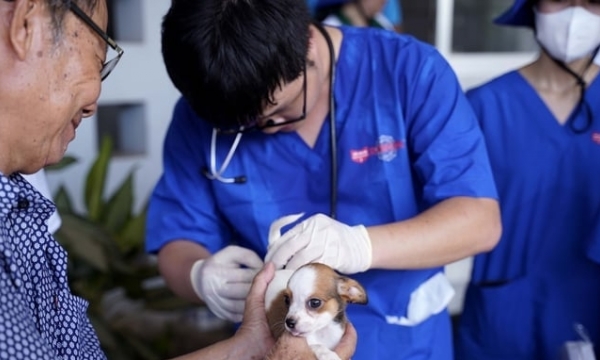
(VAN) Pet owners in Long An province exhibit indifference and a lack of understanding regarding rabies. They maintain the misconception that pet dogs and cats are immune to the disease.
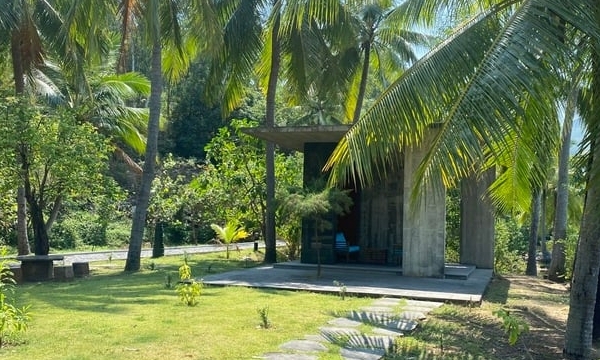
(VAN) The STAR-FARM project is funded by the European Union and implemented in the provinces of Dong Thap, Kien Giang and Tra Vinh, with a total investment of 4.2 million Euro.

(VAN) The ecosystem and social impact business organizations (SIBs), although still modest in number, is very diverse and dynamic, they have been creating positive changes in many aspects, contributing to building a sustainable future
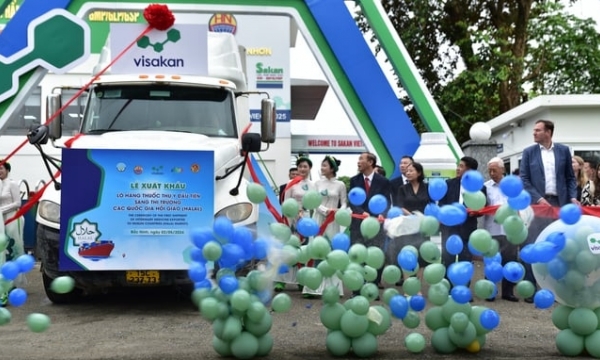
(VAN) Visakan Biotechnology Development Investment Company, a subsidiary of Hung Nhon Group, recently held a ceremony to commemorate its first export shipment of veterinary medicine to the Halal market.
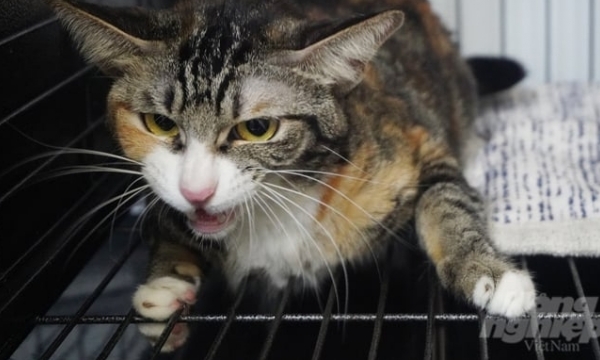
(VAN) If temporary regulations on dog and cat ownership are approved, Ho Chi Minh city will pilot the implementation of microchipping for dogs and cats in several designated areas within the inner city.
/2024/05/02/5303-5730-6-185654_281.jpg)
(VAN) Dr. Pham S, Vice Chairman of Lam Dong Provincial People's Committee: 'Lam Dong has attracted 80 FDI enterprises and 1,550 domestic enterprises to invest in agricultural development, with 150 agricultural cooperatives applying high technology'.
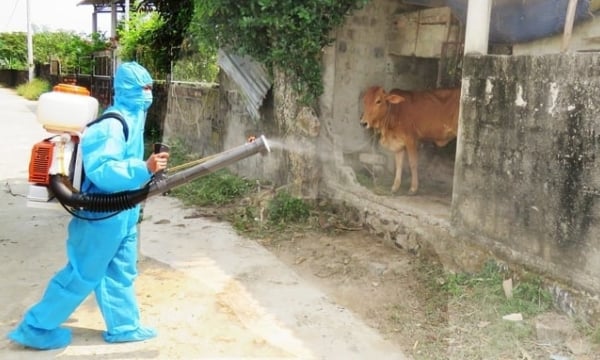
(VAN) An outbreak of Lumpy Skin Disease has occured across four districts in Quang Binh province, prompting local veterinary forces to strengthen prevention efforts.